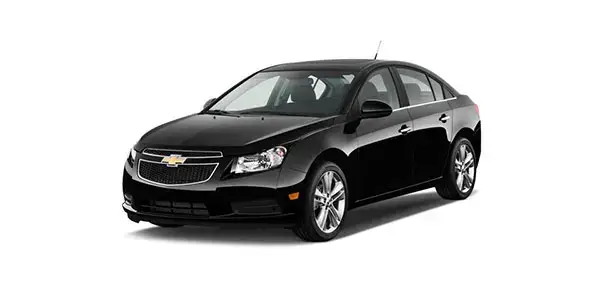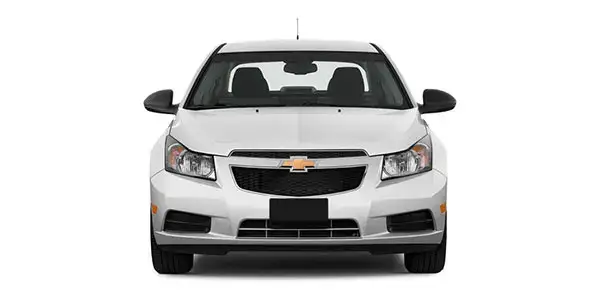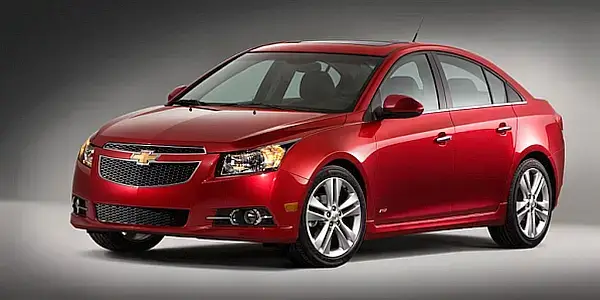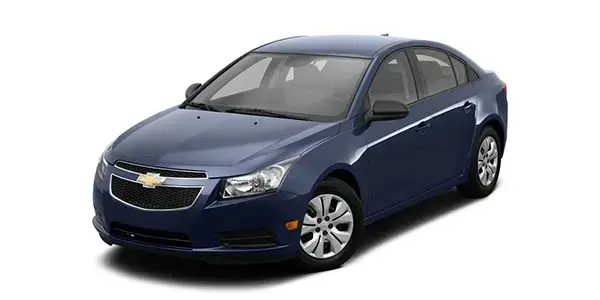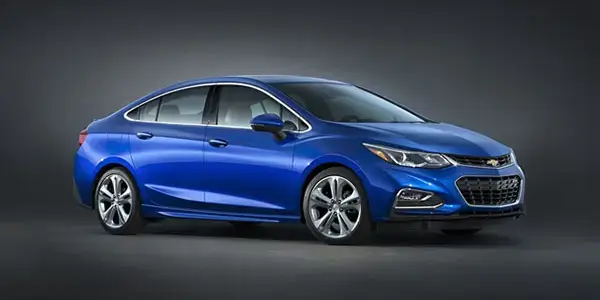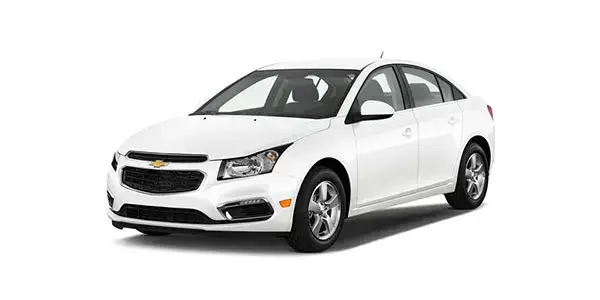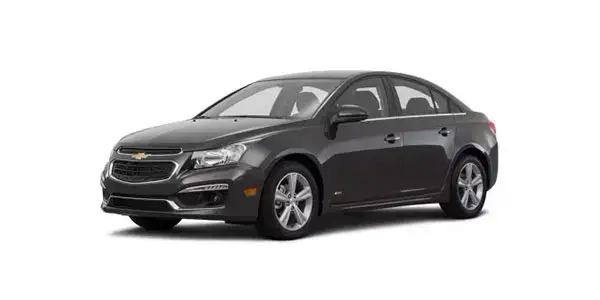Imagine this: you’re on the hunt for a reliable and trustworthy car with great fuel economy and ample cargo space, and you’ve set your sights on the Chevy Cruze. With its reputation for reliability and positive feedback on carcomplaints, the Chevy Cruze is the perfect choice. You’ve heard great things about its sleek design, fuel efficiency, and overall performance. But before car buyers dive headfirst into car shopping, there’s something crucial they need to know: which Chevy Cruze years to avoid, according to carcomplaints.
Knowing which specific model years of cars to steer clear of can save you from potential headaches down the road, especially when it comes to engine repairs. It’s important to choose a great car with a reliable engine and great fuel economy. After all, not all Chevy Cruzes are created equal. Some cars models have had their fair share of issues with fuel economy and reliability year, which could leave you stranded or with costly repairs.
Whether you’re considering buying a used Chevy Cruze or currently own one, this information will help you make informed decisions and ensure a smooth driving experience.
So let’s jump right in and explore the world of Chevy Cruze years to learn about its fuel economy, oil usage, and average liters. Because knowledge is power.
Common Problems and Reasons to Avoid Certain Chevy Cruze Years
Common Problems Experienced by Some Chevy Cruze Models
The Chevy Cruze is a popular compact car known for its sleek design, fuel efficiency, and average owner reliability score. The car’s oil and thermostat are also noteworthy features. However, like any other vehicle, it can have its fair share of issues. Several common problems have been reported by owners of certain Chevy Cruze models, including issues with fuel economy and average fixd reliability score.
One of the most frequently reported issues is engine problems, which can affect the average fixd reliability score and owner reliability score. Some drivers have complained about engine stalling, where the car suddenly shuts off while driving. This can be a major safety concern, especially if it happens on busy roads or highways with a low reliability score. Other engine-related issues include coolant leaks and transmission failure.
Transmission problems are another area of concern for some Chevy Cruze owners, affecting the reliability score. Issues such as rough shifting, hesitation, and complete transmission failure have been reported, affecting the reliability score. These problems can lead to a compromised driving experience, affecting the reliability score and resulting in expensive repairs.
Electrical issues have also plagued some Chevy Cruze models. Owners have reported various electrical malfunctions, including faulty power windows, non-responsive infotainment systems, intermittent lighting problems, and a low reliability score. Dealing with these frustrating issues may require professional assistance to resolve and improve your reliability score.
Impact on Performance and Safety
These common problems can significantly impact the performance, safety, and reliability score of the affected Chevy Cruze models. Engine stalling can occur at any time while driving, posing a serious risk to both the driver and other road users. Coolant leaks can lead to overheating issues, potentially causing further damage to the engine if not addressed promptly.
Transmission problems can cause erratic shifting or complete failure, making it difficult to accelerate or maintain speed safely on the road. This compromises the overall drivability of the vehicle and increases the likelihood of accidents or breakdowns in traffic.
Electrical malfunctions not only affect convenience features but also important safety systems such as lighting or airbag deployment mechanisms. Non-functioning power windows may prevent occupants from exiting during an emergency situation swiftly. Similarly, an unresponsive infotainment system can be a distraction while driving, compromising the driver’s focus on the road.
Specific Model Years Associated with These Issues
While not all Chevy Cruze models are plagued by these problems, there are specific model years that have been associated with a higher frequency of reported issues. It is important to note that not every vehicle within these model years will experience problems, but it does indicate a higher likelihood compared to other years.
Based on reports from websites like CarComplaints.com and owner forums, some notable problematic model years include:
- 2011: This year has seen numerous complaints about engine issues, including engine stalling and coolant leaks.
- 2012: Similar to the 2011 model year, the 2012 Chevy Cruze has had reports of engine problems and transmission issues.
- 2013: Owners of this particular year have reported various mechanical issues, including engine stalling and transmission failure.
- 2014: The 2014 Chevy Cruze has been associated with electrical problems such as power window failures and non-responsive infotainment systems.
Urging Readers to Steer Clear of Problematic Years
Considering the common problems associated with certain Chevy Cruze model years, it is advisable for potential buyers to steer clear of these specific years. While not all vehicles within these years will experience issues, the higher frequency of reported problems suggests a potential risk.
Identifying the Worst Years for Chevy Cruze Models
If you’re considering purchasing a Chevy Cruze, it’s crucial to be aware of the potential issues that certain model years may have. By highlighting specific model years known for major mechanical failures, we aim to help you make an informed decision and avoid any potential consequences or costs associated with owning these models.
Reported Issues with Specific Model Years
- 2011 Chevy Cruze: The 2011 model year has been plagued by several reported problems, including engine overheating and coolant leaks. These issues can lead to engine damage and potentially costly repairs. Some owners have also experienced transmission failure and electrical system malfunctions.
- 2012 Chevy Cruze: Similar to its predecessor, the 2012 Chevy Cruze has had its fair share of reported problems as well. One common issue is a faulty thermostat housing, which can cause coolant leaks and subsequent engine overheating. Other reported problems include turbocharger failure, transmission issues, and electrical system malfunctions.
- 2013 Chevy Cruze: The 2013 model year of the Chevy Cruze has seen reports of various mechanical failures. One prevalent issue is a defective water pump that can result in coolant leaks and overheating engines. Some owners have experienced power steering failures and transmission problems.
- 2014 Chevy Cruze: Owners of the 2014 Chevy Cruze have reported multiple concerns with their vehicles as well. A significant problem is related to the transmission control module (TCM), which can fail and cause erratic shifting or complete transmission failure. Other issues include coolant leaks due to a faulty water pump and power steering failure.
- 2015-2016 Chevy Cruze: While these model years generally have fewer reported problems compared to their predecessors, there are still some issues worth noting. One common problem is a defective ignition switch, which can cause the vehicle to stall unexpectedly. Owners have reported issues with the turbocharger and engine cooling system.
Potential Consequences and Costs
Owning a Chevy Cruze from one of these problematic model years can lead to various consequences and potentially significant costs. Here are some potential scenarios you may encounter:
- Engine Damage: Coolant leaks, overheating engines, and other mechanical failures can result in severe damage to the engine. Repairing or replacing an engine can be a costly endeavor.
- Transmission Failure: Faulty transmissions or transmission control modules (TCMs) can lead to shifting problems, complete transmission failure, or even safety hazards on the road. Replacing or repairing a transmission is often an expensive undertaking.
- Electrical System Malfunctions: Issues with the electrical system can cause various problems such as malfunctioning lights, power accessories not working correctly, or even affecting critical systems like airbags or ABS brakes.
- Power Steering Failure: If your Chevy Cruze experiences power steering failure while driving, it can make maneuvering difficult and pose a safety risk. Repairing or replacing power steering components can be pricey.
Prioritizing Avoidance of Problematic Years
Given the potential consequences and costs associated with owning a Chevy Cruze from one of these problematic model years, it’s advisable to prioritize avoiding them altogether.
Assessing the Reputation and Reliability of Chevy Cruze
Reliability is a key factor that car buyers consider. Nobody wants to end up with a lemon or spend their hard-earned money on constant repairs.
Overall Reputation and Reliability Ratings
To evaluate the reputation and reliability of the Chevy Cruze, it’s essential to take into account various sources and studies that have assessed its dependability. One such source is Consumer Reports, which provides comprehensive owner reliability scores based on surveys from thousands of vehicle owners. According to their data, some model years of the Chevy Cruze have shown better reliability than others.
Comparisons with Other Compact Cars
Now let’s compare the Chevy Cruze’s reputation and reliability with other compact sedans in its class. By doing so, we can get a better understanding of how it fares in comparison.
One popular competitor in this segment is the Honda Civic. Known for its stellar reputation as a reliable car, the Civic has consistently received high marks for dependability over the years. Another contender is the Toyota Corolla, which has also established itself as a good car option for those seeking reliable transportation.
The Chevy Cruze’s Reliability Score
While some model years of the Chevy Cruze have fared well in terms of owner reliability scores, there are others that have experienced issues requiring engine repairs or other significant fixes. It’s important for potential buyers to be aware of these differences when considering purchasing a used Chevy Cruze.
According to Fixd, an innovative vehicle health monitoring system, they have analyzed data from millions of vehicles across different makes and models to provide insights into common problems reported by users. Their analysis suggests that certain model years of the Chevy Cruze have had higher rates of engine-related issues compared to others.
NHTSA Safety Ratings
Apart from reliability, safety is another crucial aspect. The National Highway Traffic Safety Administration (NHTSA) conducts rigorous crash tests and provides safety ratings for vehicles. Looking at the NHTSA safety ratings for the Chevy Cruze can give us further insight into its overall reputation.
The Chevy Cruze has consistently received high scores in various safety categories, including frontal crash, side crash, and rollover resistance. This indicates that the vehicle offers good protection to its occupants in the event of an accident.
Dealer Support and Resale Value
When considering a used car purchase, it’s also important to factor in dealer support and resale value. While the Chevy Cruze may have had some reliability issues in certain model years, having a reliable dealership network can make a difference.
Resale value is something many buyers consider as they plan for future upgrades or potential sales down the line. The Chevy Cruze has generally maintained decent resale values over time, which is an encouraging sign for those looking to invest in this compact sedan.
Reliability of Different Used Chevy Cruze Models
Reliability is always a key consideration. Nobody wants to end up with a car that constantly breaks down or requires expensive repairs. In the case of the Chevy Cruze, there are different models available in the used car market, and their reliability can vary. Let’s take a closer look at the reliability of different used Chevy Cruze models and factors that can affect it.
Comparison of Reliability Between Different Used Chevy Cruze Models
Reliability can vary between different model years of the Chevy Cruze. Some years may have had more issues reported by owners, while others have proven to be more reliable. It’s important to research specific model years before making a purchase decision.
Here’s a breakdown of some popular used Chevy Cruze models and their reliability:
- 2011-2015 Chevy Cruze: These earlier model years generally have good reliability ratings. They are known for being fuel-efficient and having reasonable lifetime service parts.
- 2016-2018 Chevy Cruze: The later model years saw improvements in technology and features, but some owners have reported issues with engine problems or electrical system malfunctions. However, many owners still find these models to be reliable overall.
- 2019-2020 Chevy Cruze: Unfortunately, these were the last two production years for the Chevy Cruze as General Motors discontinued its production after 2020 due to shifting consumer preferences towards SUVs and trucks. While these newer models may have fewer miles on them, it’s essential to consider that they may not have been on the road long enough to determine their long-term reliability accurately.
Factors That Affect Reliability
Several factors can impact the overall reliability of a used Chevy Cruze:
- Engine Type: The engine type can play a significant role in determining how reliable a particular model year is. Some engines may have known issues or require more frequent maintenance than others. It’s crucial to research the specific engine options available for each model year and consider their reliability history.
- Trim Level: Different trim levels of the Chevy Cruze may come with varying features and components that could impact reliability. Higher-end trims may have more advanced technology, but they can also introduce potential issues that are not present in the base models.
- Maintenance History: The previous owner’s maintenance habits can greatly influence a used car’s reliability. Regular oil changes, scheduled maintenance, and proper care can contribute to a vehicle’s longevity and reduce the likelihood of unexpected breakdowns.
Importance of Researching Specific Model Years
Before purchasing any used Chevy Cruze model, it is essential to conduct thorough research on the specific model year you are considering. This research should include checking for any recalls or common issues reported by owners. Online forums and consumer reviews can provide valuable insights into the reliability of different model years.
By taking the time to research and gather information about specific Chevy Cruze models, you can make an informed decision that will lead to long-term satisfaction with your purchase.
Finding a Reliable Used Chevy Cruze
While some model years may have had more reported reliability issues than others, it doesn’t mean that every car from those years will be problematic.
Mileage Considerations for Used Chevy Cruze Models
When buying a used car, one of the most important factors to consider is mileage. The number of miles a vehicle has traveled can give you insight into its overall condition, potential issues, and value.
How Mileage Affects Value, Condition, and Potential Issues
The mileage of a used car plays a significant role in determining its value. Generally, vehicles with lower mileage tend to have higher resale values compared to those with higher mileage. This is because lower mileage suggests that the car has been driven less and may be in better overall condition.
The condition of components such as the engine, transmission, and suspension can be influenced by the number of miles on the odometer. As a car accumulates more miles, these parts experience wear and tear. Therefore, it’s essential to consider the potential maintenance or repair costs associated with higher-mileage vehicles.
Average Mileage Expectations for Different Model Years
To give you an idea of what to expect in terms of mileage for different model years of Chevy Cruze cars:
- First-generation Cruze (2011-2015): On average, these models may have accumulated around 80,000 to 100,000 miles.
- Second-generation Cruze (2016-2019): Since these models are relatively newer, they might have lower average mileages ranging from 40,000 to 60,000 miles.
- Third-generation Cruze (2020-present): Given their recent release dates, these models are likely to have significantly fewer miles on them—typically under 20,000 miles.
It’s important to note that these figures are approximate averages based on typical usage patterns. Individual cars may deviate from these numbers depending on various factors such as the previous owner’s driving habits and maintenance practices.
What Mileage Range to Look for When Buying a Used Chevy Cruze
When buying a used Chevy Cruze, it’s generally recommended to look for models with lower mileage. While there is no definitive threshold that determines whether a car has “low” or “high” mileage, aiming for a range of 30,000 to 60,000 miles can be a good starting point.
By focusing on vehicles within this mileage range, you increase your chances of finding cars that are relatively newer and may have fewer potential issues due to wear and tear. However, keep in mind that other factors such as maintenance history and overall condition should also be considered alongside mileage.
The Importance of Maintenance and Service History
While mileage is an essential factor when purchasing a used Chevy Cruze, it shouldn’t be the sole determining factor. Equally important is the vehicle’s maintenance and service history. A car with low mileage but inadequate maintenance might still pose problems down the line.
When evaluating potential purchases, consider asking for documentation of regular oil changes, inspections, and any significant repairs or replacements. A well-maintained vehicle with higher mileage may be a better option than one with lower mileage but poor upkeep.
Cost Analysis: Fixing or Buying a Chevy Cruze
It’s important to consider the potential costs associated with repairs and maintenance. By understanding these factors, you can make informed decisions based on your budget and avoid any expensive surprises down the road.
Comparing Repair Costs for Common Issues
One of the key considerations when deciding whether to fix or buy a Chevy Cruze is the cost of repairing common issues that may arise in older models. Some of these issues include engine problems, transmission malfunctions, and electrical system failures.
- Pros:
- Repairing common issues can be more affordable than buying a new car.
- It allows you to keep your current vehicle if you have an attachment to it or prefer its features.
- Cons:
- Older models may require frequent repairs due to wear and tear.
- The cost of fixing major issues can add up over time.
Potential Expenses for Major Repairs
Major repairs on a Chevy Cruze can be costly, especially if they involve critical components such as the engine or transmission. Before deciding whether to repair or replace your vehicle, it’s essential to consider the potential expenses involved.
- Pros:
- Repairing major issues can extend the lifespan of your current vehicle.
- It may be cheaper than purchasing a new car outright.
- Cons:
- The cost of major repairs could exceed the value of your car.
- Older models may have limited availability of parts, leading to higher prices.
Impact Factors: Availability and Labor Rates
The availability of parts and labor rates are crucial factors that impact repair costs for Chevy Cruzes. If replacement parts for your specific model year are scarce or hard to find, it could significantly increase repair expenses. Labor rates can vary depending on the location and the mechanic you choose.
- Pros:
- If parts are readily available, it may be easier to find affordable solutions.
- Opting for a reputable mechanic with competitive labor rates can save you money.
- Cons:
- Limited availability of parts could result in higher costs or delays in repairs.
- High labor rates may inflate the overall repair bill.
Making an Informed Decision
When faced with expensive repairs on your Chevy Cruze, it’s essential to weigh your options carefully. Consider the following factors to make an informed decision:
- Repair Costs vs. Car Value: Compare the cost of repairs to the current value of your vehicle. If the repair costs exceed its worth, it might be more financially prudent to explore other options.
- Affordable Price: Research different model years and their price ranges to determine if purchasing a newer or used Chevy Cruze is a viable alternative.
- Gap Insurance: If you decide to keep your current vehicle and opt for repairs, consider obtaining gap insurance. This coverage can help bridge the gap between what you owe on your car loan and its actual cash value if it gets totaled.
- Direct Fitment vs. Substitute Parts: Discuss with your mechanic whether using direct fitment or substitute parts is a more cost-effective solution for repairing your Chevy Cruze.
- Maintenance Over Time
Key Takeaways on Chevy Cruze Years to Avoid
In summary, it’s crucial to be aware of the Chevy Cruze years that should be avoided due to common problems and reliability issues. By identifying the worst years for Chevy Cruze models, you can make an informed decision when buying a used vehicle. Remember to consider the reputation and reliability of different used Chevy Cruze models, as well as mileage considerations and the cost analysis of fixing or purchasing a Chevy Cruze.
Ultimately, your goal is to find a reliable and trustworthy vehicle that suits your needs. Don’t let potential issues deter you from considering a Chevy Cruze altogether, but do exercise caution when exploring specific model years. With proper research and attention to detail, you can find a dependable used Chevy Cruze that will serve you well for years to come.
FAQs
Are all Chevy Cruze models unreliable?
No, not all Chevy Cruze models are unreliable. While certain model years may have had more common problems than others, there are still many reliable options available. It’s important to thoroughly research and inspect any used vehicle before making a purchase.
Can I trust the reputation of the Chevy Cruze?
The reputation of the Chevy Cruze varies depending on the specific model year. Some years have been known for their reliability and positive reviews, while others have faced more issues. It’s advisable to consult reputable sources such as consumer reports and owner reviews for accurate information.
Should I prioritize low mileage when buying a used Chevy Cruze?
While low mileage is generally desirable in a used car, it shouldn’t be the sole factor influencing your decision. Other factors such as maintenance history, overall condition, and price should also be considered. A well-maintained higher-mileage vehicle can still provide good performance if properly cared for.
Is it better to fix or buy a new Chevy Cruze?
The decision to fix or buy a new Chevy Cruze depends on the extent of the repairs needed, the age and mileage of your current vehicle, and your budget. It’s advisable to consult with a trusted mechanic to assess the cost-effectiveness of repairs versus purchasing a new or used car.
Can I negotiate the price when buying a used Chevy Cruze?
Yes, negotiating the price is common when buying any used car, including a Chevy Cruze. Do your research on market prices for similar models in your area and use that information as leverage during negotiations. Remember to consider factors such as condition, mileage, and any known issues when determining a fair price.

